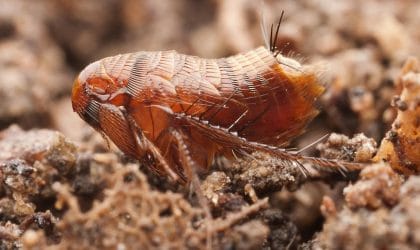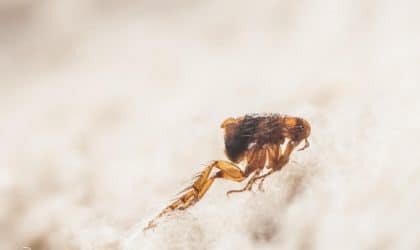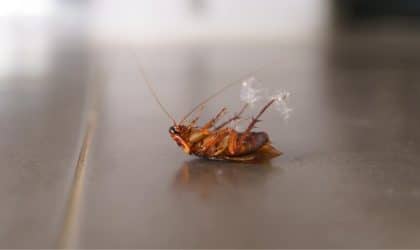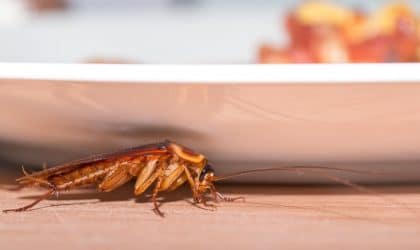Why Do Hornets Hover? Everyday Things that Actually Attract Hornets
Looking for the reason that hornets just won't leave you alone? There can be a variety of reasons they've decided to hover around you or your yard. In this article, we look at four different possibilities.
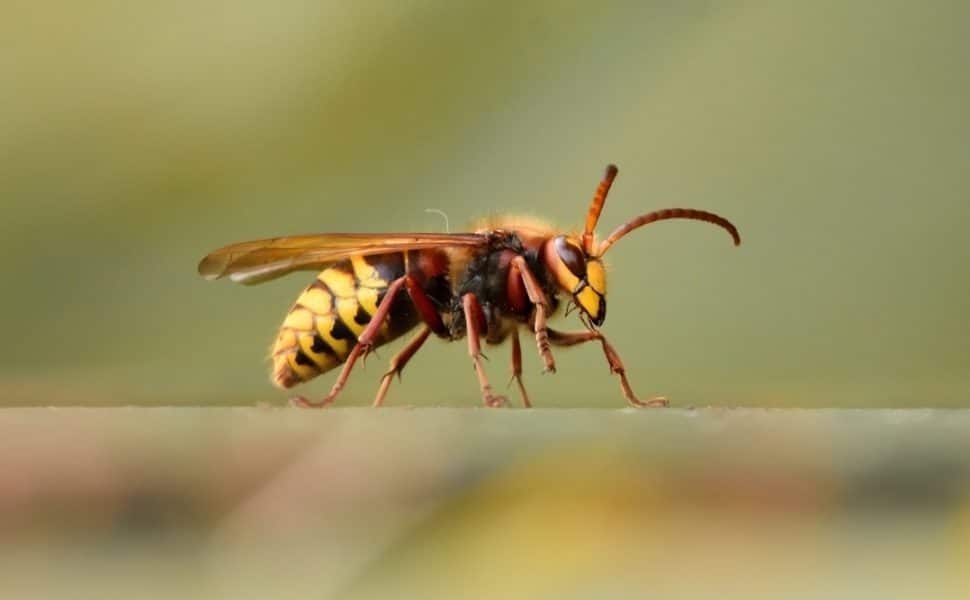
Have you ever experienced relaxing on a quiet Sunday picnic when suddenly, a large hornet starts to hover over you? Why do hornets hover? Do you have something in particular that they’re interested in?
You’d be surprised to find out that something as simple as clothing may impact why a hornet won’t leave you alone. Sometimes, hornets just hover over things because they’re attracted to them, even if it’s something as simple as the way you smell.
In the article below, we explain several reasons why hornets might just be suddenly into you, which, sadly, might be a reason why they eventually go on to attack.
Let’s jump in!
You Have an Attractive Scent

You might want to dial down on that Eau de Toilette. Hornets are sensitive to their environment, especially when odors are involved. Detecting specific kinds of smells is essentially a survival skill. They can’t eat if they can’t find food through its smell. Fallen fruits and nectar, for example, are traced through their aromas.
Unfortunately, we humans have a habit of masking our natural odor with sweet or floral smelling perfumes, body sprays, detergents, lotions, colognes and soaps. That’s why hornets react to our scents and get confused. They hover over us and try to make sense of the scent they’re picking up.
You’re Wearing The Wrong Clothing

Wearing the right color can mean the difference between being ignored or being attacked by wasps and bees.
Hornets are in the same order as these bugs, so they’re also be affected by the clothes that you wear. Their eyes are designed to hunt for food. This includes bright colored flowers that have nectar on them. So it’s only logical to think that vivid colors like yellow and neon pink might cause them to hover over you.
But what about dark colors like black? Well, wearing black and even red can lead these bugs to think that you’re associated with predators like skunks and bears. So they might try to attack you.
Also, there’s actually no color that can repel these insects. But if you’re looking to be on the safe side, wear white. The lack of color causes these insects to ignore you. After all, there’s a reason why bee keepers wear white suits.
You’re Near a Water Source

Hornets love water. Not only do they need it to survive, they need it to build their nests. So hornets are often seen near water features like bird baths and fountains. They’re even seen beside swimming pools and clotheslines that still have wet garments on them, hovering over them to collect water with their mandibles.
You’re Near a Light Source
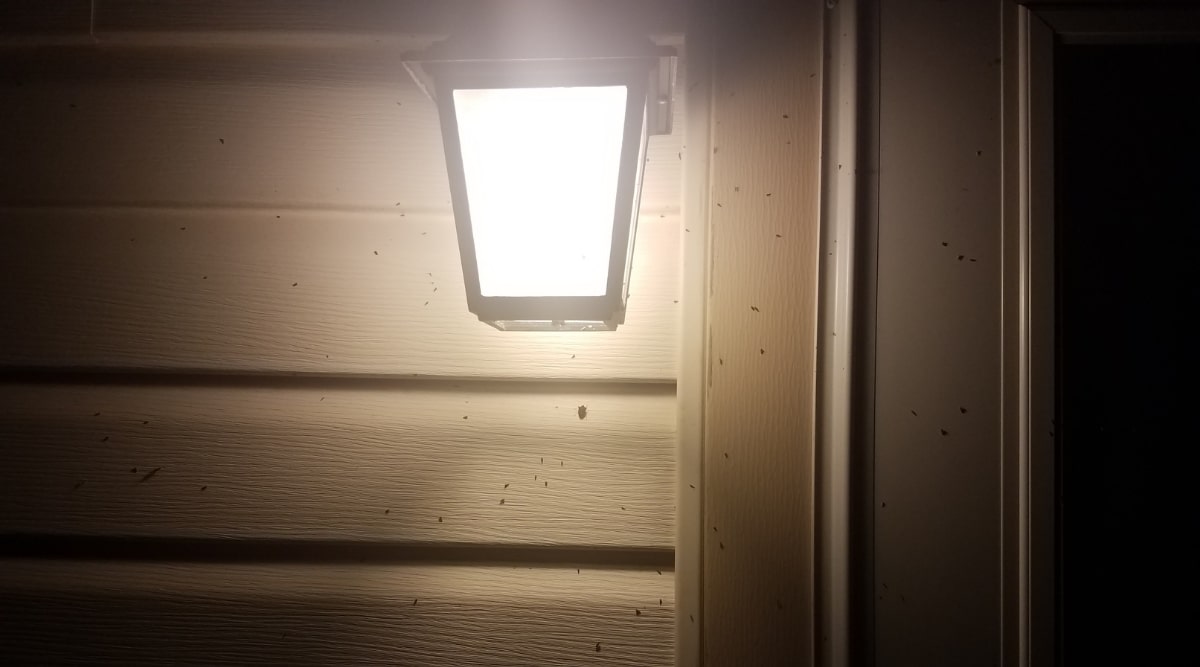
Lastly, if a hornet is uncomfortably close to you, it could have something to do with a man-made light near you. Unnatural light confuses hornets, especially when it’s dark out.
These insects have adapted to using the moon and the stars to navigate their way through an area. But when a lightbulb, porch light or cellphone is turned on somewhere near, they mistake that light for the moon or stars, and they follow it instead.
So when you’re out on the porch with your mobile device, a hornet may hover close to you because of its light.
You’ve Provided a Food Source
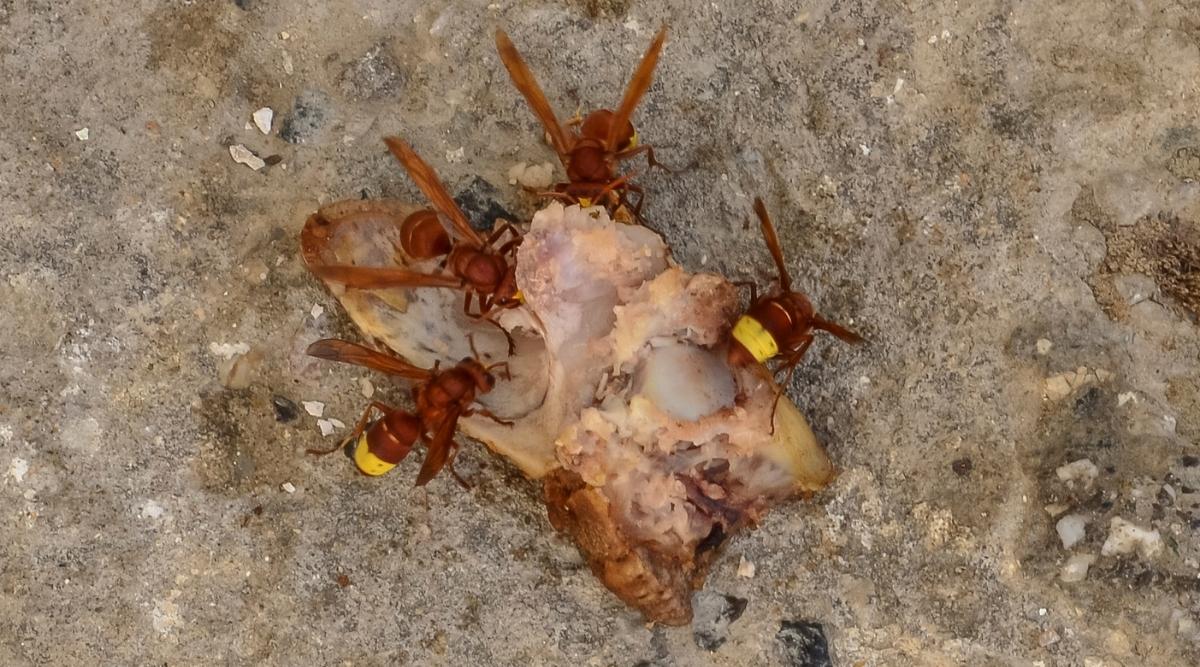
Hornets are meat-eaters. This means they eat other bugs and insects, while most wasps typically do not. If you’ve provided a food source for them, you can be sure that they’ll want to stick around your home. It’s a good idea to eliminate any insects that may attract them.
Hornets don’t eat mosquitoes, but they do eat spiders and other types of insects. Keep your home clear of these bugs to prevent hornets from setting up their nests around your home.
Final Thoughts
So there you have it. Why do hornets hover? Because you have something that they’re interested in. It could be light, water, smell or color. All these things are considered attractants when it comes to this stinging predator. Of course, you could always just be pretty near a nest, which can be removed DIY, but we recommend calling a professional.
Share this post
Save time and money on pest control
Subscribe to expert DIY pest control tips, pest control product reviews and information.

